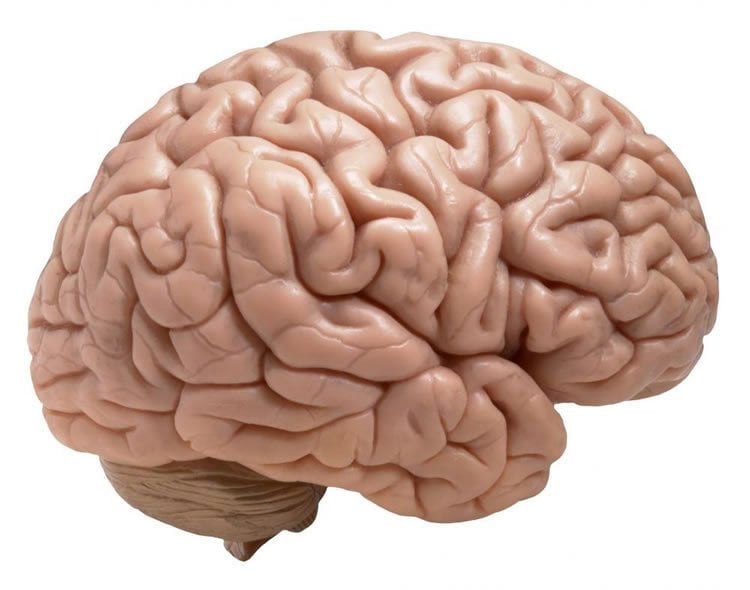Summary: A new study reveals decreasing a specific set of proteins reduces depression in mice.
Source: Northwesterm University.
Manipulating novel target could lead to new treatments.
Northwestern Medicine scientists have shown how manipulating a novel target in the brain using gene therapy could lead to new treatments for depression.
The investigators showed decreasing a set of proteins called HCN channels reduced depression-like behavior in mice. If replicated in humans, the findings could inform fresh therapies for millions of patients who do not respond to existing treatments for depression.
“Drugs currently available for treating depression help most patients, but they stop working for some patients and don’t work from the get-go for others,” said senior author Dr. Dane Chetkovich, a professor of neurology and of physiology at Northwestern University Feinberg School of Medicine and a Northwestern Medicine neurologist. “There is a real need for new therapies to help patients desperate for alternatives to the available therapeutic options.”
The study will be published July 12 in the journal Molecular Psychiatry.
Most existing antidepressants affect mood and emotions by increasing levels of neurotransmitters called monoamines, namely serotonin, dopamine and norepinephrine. But the fact that these drugs are not effective for many patients suggests there are additional mechanisms underlying depression yet to be uncovered that could be targeted with new therapies.
In previous research, Chetkovich’s lab and others showed those mechanisms might involve the hippocampus, a region of the brain important for learning, memory and emotional regulation. There, they saw changes to HCN channels, typically involved in controlling the electrical activity of cells in the heart and brain, also played a critical role in behaviors linked to depression.
In the new study, a group of Northwestern scientists led by Chetkovich took steps to translate that insight into a potential gene therapy using mouse models. The scientists surgically injected mice with a nontoxic virus engineered to express a gene that turns off HCN channel function in hippocampus neurons.
“When the HCN channels stopped working, the mice behaved as if they’d been given antidepressant medications,” Chetkovich explained.
In contrast, increasing the function of HCN channels removed the antidepressant effect.

To measure depression-like behavior, the scientists measured how long mice would seek to escape an environment before giving up — a test commonly used by the pharmaceutical industry to screen compounds for effectiveness as antidepressants, including medications currently on the market.
“This work not only identifies a totally new treatment target for depression, it provides a detailed molecular description of the structures that need to be manipulated for it to act as an antidepressant and develops viral tools to do so,” said Chetkovich, who is also director of Feinberg’s Medical Scientist Training Program.
In future research, the scientists are focusing on adapting the viral gene therapy approach to human patients. They also have a grant from the National Institute of Mental Health to find small molecules that could be developed into oral medications to turn off HCN channels in the brain.
Other Northwestern authors of the study include Ye Han, Robert Heuermann, Kyle Lyman, Daniel Fisher and Quratul-Ain Ismail.
Funding: This research was supported by National Institutes of Health grants 2R01NS059934, R01MH106511, R21MH104471 and 2T32MH067564, Brain Research Foundation grant SG 2012-01 and Chicago Biomedical Consortium grant HTS-004.
Source: Northwesterm University
Image Source: This NeuroscienceNews.com image is in the public domain.
Original Research: Abstract for “HCN-channel dendritic targeting requires bipartite interaction with TRIP8b and regulates antidepressant-like behavioral effects” by Y Han, R J Heuermann, K A Lyman, D Fisher, Q-A Ismail and D M Chetkovich in Molecular Psychiatry. Published online July 12 2016 doi:10.1038/mp.2016.99
[cbtabs][cbtab title=”MLA”]Northwesterm University. “New Antidepressant Target Discovered: Mouse Study.” NeuroscienceNews. NeuroscienceNews, 12 July 2016.
<https://neurosciencenews.com/hcn-antidepressant-psychology-4671/>.[/cbtab][cbtab title=”APA”]Northwesterm University. (2016, July 12). New Antidepressant Target Discovered: Mouse Study. NeuroscienceNews. Retrieved July 12, 2016 from https://neurosciencenews.com/hcn-antidepressant-psychology-4671/[/cbtab][cbtab title=”Chicago”]Northwesterm University. “New Antidepressant Target Discovered: Mouse Study.” https://neurosciencenews.com/hcn-antidepressant-psychology-4671/ (accessed July 12, 2016).[/cbtab][/cbtabs]
Abstract
HCN-channel dendritic targeting requires bipartite interaction with TRIP8b and regulates antidepressant-like behavioral effects
Major depressive disorder (MDD) is a prevalent psychiatric condition with limited therapeutic options beyond monoaminergic therapies. Although effective in some individuals, many patients fail to respond adequately to existing treatments, and new pharmacologic targets are needed. Hyperpolarization-activated cyclic nucleotide-gated (HCN) channels regulate excitability in neurons, and blocking HCN channel function has been proposed as a novel antidepressant strategy. However, systemic blockade of HCN channels produces cardiac effects that limit this approach. Knockout (KO) of the brain-specific HCN-channel auxiliary subunit tetratricopeptide repeat-containing Rab8b-interacting protein (TRIP8b) also produces antidepressant-like behavioral effects and suggests that inhibiting TRIP8b function could produce antidepressant-like effects without affecting the heart. We examined the structural basis of TRIP8b-mediated HCN-channel trafficking and its relationship with antidepressant-like behavior using a viral rescue approach in TRIP8b KO mice. We found that restoring TRIP8b to the hippocampus was sufficient to reverse the impaired HCN-channel trafficking and antidepressant-like behavioral effects caused by TRIP8b KO. Moreover, we found that hippocampal expression of a mutated version of TRIP8b further impaired HCN-channel trafficking and increased the antidepressant-like behavioral phenotype of TRIP8b KO mice. Thus, modulating the TRIP8b–HCN interaction bidirectionally influences channel trafficking and antidepressant-like behavior. Overall, our work suggests that small-molecule inhibitors of the interaction between TRIP8b and HCN should produce antidepressant-like behaviors and could represent a new paradigm for the treatment of MDD.
“HCN-channel dendritic targeting requires bipartite interaction with TRIP8b and regulates antidepressant-like behavioral effects” by Y Han, R J Heuermann, K A Lyman, D Fisher, Q-A Ismail and D M Chetkovich in Molecular Psychiatry. Published online July 12 2016 doi:10.1038/mp.2016.99






